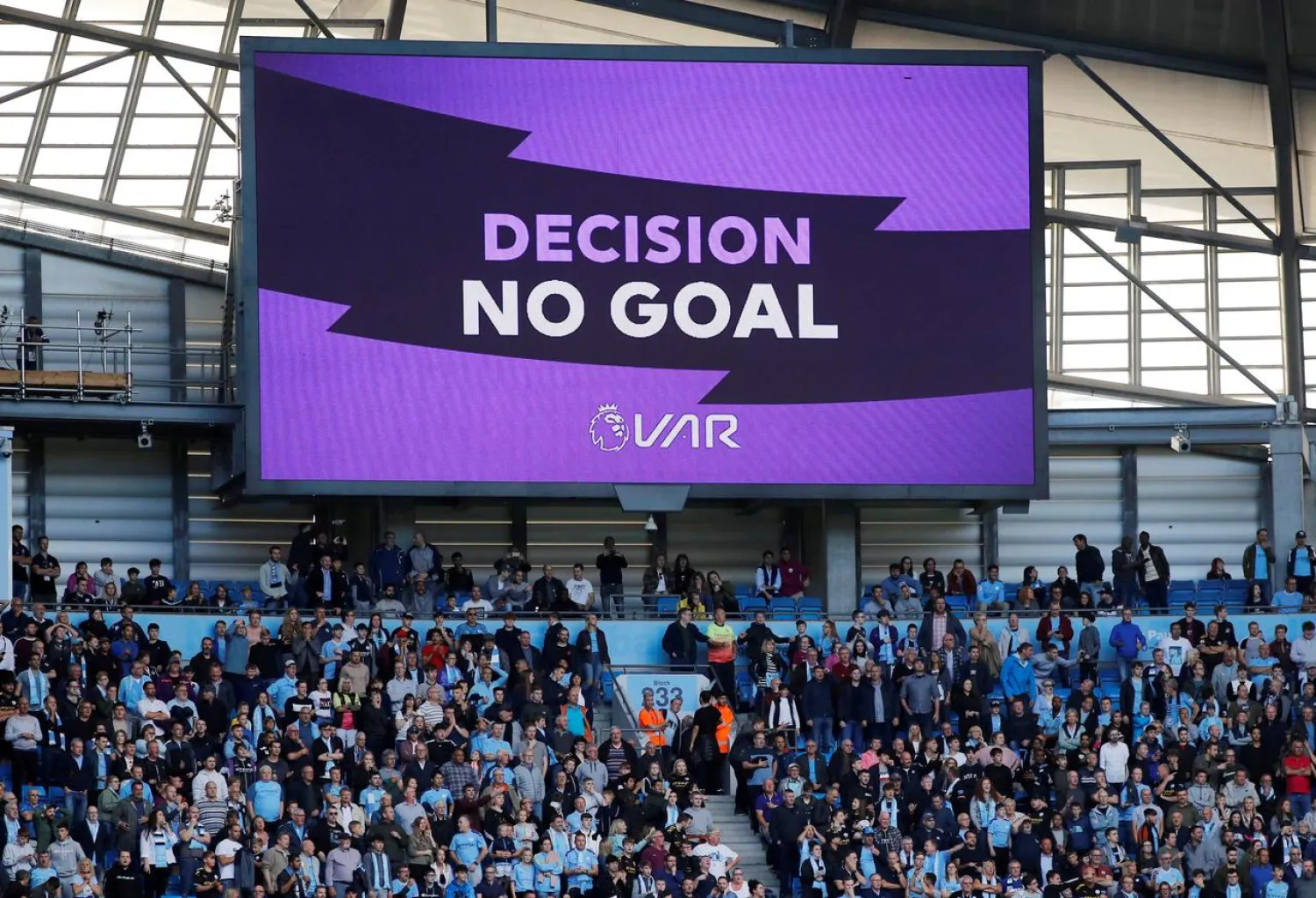Thank goodness for Arsène Wenger. It is about time someone with a genuine appreciation of the game stepped in to prevent VAR’s remote officials tying themselves in unnecessary knots over something as straightforward as the offside rule.
What Wenger is suggesting, in his capacity as Fifa’s head of global development, is a slight variation on the concept of daylight between an attacking player and the last defender. The former Arsenal manager believes that if any part of a player’s body that can score a goal is level or onside – ie anything except hand or arm – he should not be ruled offside and we can stop chalking off perfectly good goals because an armpit or a big toe was millimeters ahead of the last defender.
That sounds sensible, and should work, although you just know that the people at Stockley Park are not going to give up their imaginary lines across the pitch without a fight. What we will probably see next season, should Wenger’s amendment be accepted, is a series of microscopically measured arguments to decide whether a player’s heel or backside was actually onside or not. What Wenger is proposing should do a lot to prevent goals being ruled out when the attacking player was neither seeking nor gaining any unfair advantage, but the real problem with VAR as we have seen it so far in this country is the element of remote refereeing that can be such an intrusive disruption to the game.
Aston Villa’s Dean Smith put it well last week when he complained that Martin Atkinson’s authority had been undermined after the referee’s original decision to award a goal-kick was overruled from afar and Tottenham ended up with a penalty. In terms of the actual decision VAR probably got it right; whereas it looked to the naked eye as if Björn Engels had made a last-ditch but legitimate tackle on Steven Bergwijn, replays were able to show the Villa defender had caught the man rather than played the ball. That, several unsympathetic commentators said in response to Smith’s objection, is exactly what VAR is supposed to be for.
But is it? Rather than take the matter out of Atkinson’s hands and award a penalty after studying the incident from several angles, might it not have been better, as Smith suggested, for the referee to take a quick look at his pitchside monitor to make sure he had made a reasonable decision? The word reasonable is used there because Atkinson might not have made the right decision just by reviewing the footage once or twice. VAR made the right decision, no question about that, but as with the pernickety approach to marginal offside calls, the right decision is not always worth holding the game up for the time it takes to arrive.
Although many might think it is, there should also be some sympathy for Smith’s view that 42,000 people inside Villa Park were happy enough to accept the referee’s verdict and Bergwijn himself was not making a fuss about Engels’ challenge. It was not the most obvious of fouls, so it was not the most obvious mistake by the referee. If you are of the persuasion that every decision must be as accurate as possible, using all the technology available on every occasion then fine, but the price for that is constant interruption to the game, and the rather unsatisfactory feeling that far from being in control and attempting to be fair to both sides the referee on the pitch is now no more than a cipher, a notional representation of an authority that actually lies elsewhere.
This is not what most people imagined VAR would bring. The vast majority of football watchers simply wanted a mechanism whereby contentious decisions could be swiftly reviewed or doubt in the mind of a referee erased by the ability to watch a quick replay. Pitchside monitors would be enough to achieve those aims, especially if spectators are allowed to keep up with the debate via the big screens, as they soon will be if Wenger gets his way. The deferring of decision-making to remote officials many miles away is something no one seems to have asked for and only referees actually want. It is not exactly sinister – we are only talking about football matches after all – but it contradicts the unwritten assumption that the reason spectators pay money to get into a game is to obtain the best view.
In other words, to quote the reaction of the Holte End at Villa Park as Tottenham’s penalty was being awarded: “It’s not football any more.” Plenty of people feel that way, including Wenger, it would appear. Smith definitely feels that way, though he did not have any complaints over an incident a few minutes earlier in the same game when Bergwijn was appealing for a handball penalty and a VAR check ruled it out. The Holte End had nothing to say on that subject either.
However they are arrived at refereeing decisions will continue to be contested by partisan supporters; it would hardly be football otherwise. But most of the point of attending a football match is to be close to the action and feel part of an occasion, and even if VAR speeds up and becomes more consistent the idea that the important calls are being made outside the stadium will remain hard for crowds to swallow.
The Guardian Sport









